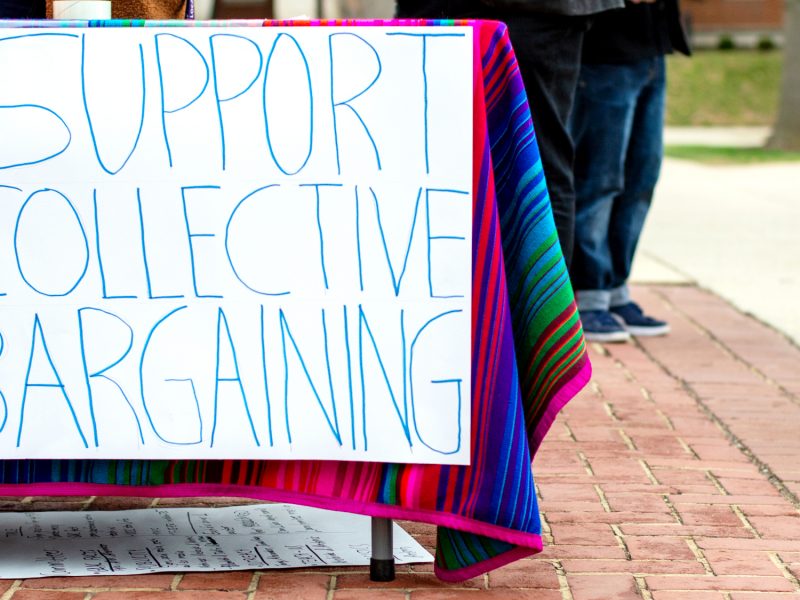It’s time for the University System of Maryland Foundation to put its money where its mouth is. It’s time for us to heed the calls of our world leaders and 97 percent of our scientists in building a future defined not by climate injustice and corporate greed, but instead by sustainable clean-energy policies. It’s time for us to reward companies with low carbon footprints, better the future of humanity and promote social justice. The system foundation has shown its capacity to achieve and excel in prioritizing low carbon companies; now, it’s time we take serious and immediate action to fully divest from dirty energy companies and seize an equitable future.
The system encompasses 11 colleges and universities. Of its $979 million endowment fund, about $50 to $70 million is invested in the energy sector, primarily oil and natural gas. As universities train the next generation of engineers, scientists, doctors, lawyers and public health officials to find solutions to the challenges posed by climate change, they are simultaneously perpetuating a system that threatens future progress.
This fall, the Student Government Association at the University of Baltimore passed a resolution calling for an immediate freeze on fossil fuel investments and complete divestment of dirty energy companies over five years. At the state’s flagship university, this one, the SGA unanimously passed a similar resolution and garnered more than 600 student signatures in support. Following the COP21 Paris climate conference, we are inspired by the words of United Nations Secretary General Ban Ki-moon, who said it was time for investors and fund managers to move from “aspiration to action.”
Fossil Free MD joins a nationwide movement seeking to create a just transition to a clean energy economy so that we may definitively halt our ability to profit off the institutions that contribute to social and racial injustice. Around the world, more than 500 institutions have already pledged to divest $3.4 trillion from fossil fuel companies. If we seek to continue being a green model for the nation, we must act swiftly or erode our legitimacy to teach about sustainability. By investing in dirty energy companies, we also profit from the industry most responsible for climate change. As climate change disproportionately affects minority, low-income communities and developing nations, this issue is not relegated to the realm of environmental activism; it’s very much at the forefront of social justice, and its proponents highlight the importance of funding companies that seek to bolster those who live sustainably and act justly.
On Feb. 2, members of this university’s SGA and the SGA president of the University of Baltimore (also the vice president of the University System of Maryland Student Council) met with the USMF. USMF entered with a commitment to open dialogue and pursuing a solution we could all agree upon. The foundation responded to our calls for action with news of a low carbon index that weights companies based on their carbon footprint, ideally leading to a market shift away from fossil fuels. They cited Fossil Free MD’s first meeting with the USMF almost three years ago as the driving force behind crafting this index.
Though we applaud CRBN as an important step forward and recognize its potential to shift markets away from the dirty energy sector, we nevertheless emphasize the importance of removing our portfolio completely from dirty energy over five or 10 years: whichever minimizes the loss in returns. As one of the top 13 green schools in the nation, the system bets against the success of its students to solve the challenges posed by climate change by continuing to invest in fossil fuels.
We have found that it is increasingly less risky for clean energy companies, who also face increased return prospects from just a few years ago. MSCI’s fossil-free index prospectus implied no trade off between values and performance for divestment proponents. 350.org, an environmental activist group, has tracked money lost by not divesting from fossil indexes; the amount lost to pension funds and universities alike is staggering.
Let’s work together in making sure we divest responsibly to provide for future generations. Shall they remember the moment their university decided to be a leader in pursuing climate justice and a clean energy economy, or shall they resent the moment we rejected our responsibility to act for the future interests of humanity, our planet and an economy founded on declining dirty energy stocks?
Maya Spaur, director of the SGA sustainability committee, is a junior environmental science and government and politics major. She can be reached at mspaur@terpmail.umd.edu.



